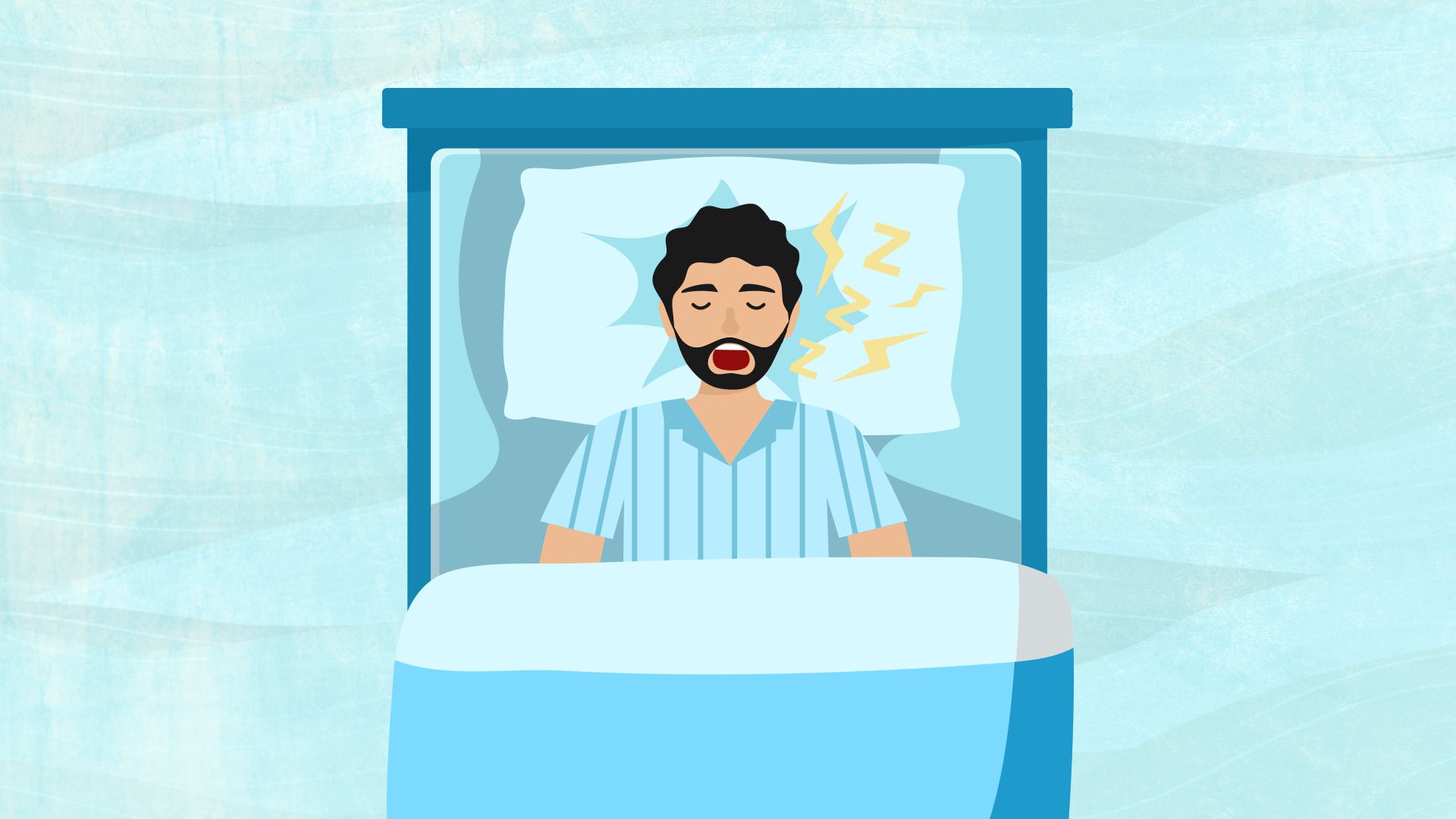
Diagnosis and Treatment of Sleep Snoring
Sleep snoring is a condition which affects millions of people worldwide. It happens when the nose and mouth get blocked. The vibration and rattling of tissues in the air canal produce the snoring sound. As you inhale and exhale, the moving air causes the tissue to flutter, causing noises.
Snoring has a profound effect on the person who snores and the people who sleep close to them, such as spouses, kids, friends or others. Snoring is sometimes a temporary issue, so it goes away quickly. In cases where snoring is a persistent problem, it may indicate other disorders requiring a diagnosis and appropriate treatment.
It may even be a symptom of a sleep disorder like sleep apnea, where the air canal gets obstructed due to multiple factors.
What Causes Sleep Snoring?
- Blocked nasal passages: Cases of sinus infection or allergy seasons cause snoring in some people. Even a deviated septum or nasal polyps can cause snoring. A deviated septum is when the wall dividing the two nostrils is off-center.
- Bulky throat tissue: Obese people tend to have bulky throat tissue causing snoring. Children having large adenoids or tonsils also tend to snore.
- Alcohol or drug use: Intake of too much alcohol or using muscle relaxers causes snoring due to relaxed throat and tongue muscles.
- Sleep position: Sleeping on your back causes snoring in most cases—even using very soft or very big pillows.
- Poor throat and tongue muscle tone: Your throat and tongue muscles may collapse into your airway due to a very relaxed state. This causes snoring.
- Long uvula: The uvula or soft palate is the tissue dangling at the back of your mouth. A long one can narrow your airway from your nose to the throat.
- Sleep Deprivation: You may snore if you don’t get enough sleep. This is due to the throat muscles, which relax in such conditions.
When to Consult a Doctor About Sleep Snoring?
- Very loud snoring
- Obesity or recent weight gain
- Daytime drowsiness
- Lack of focus
- High blood pressure
- Teeth grinding at night
- Morning headaches & congestion
- Frequent nighttime urination
- If snoring happens with snorting, choking or gasping sounds
- If snoring happens three or more times a week
Diagnosis of Sleep Snoring
Your Sleep doctor may do a physical examination to check for sinusitis, rhinitis, deviated septum or swollen tonsils. Tests done include –
- Imaging tests such as MRI, CT Scan and X-Rays to look for blocked airways
- Sleep study, known as polysomnography, could be done at home or in a sleep lab
Treatments For Sleep Snoring
- Lifestyle changes: This includes quitting smoking, no alcohol before bed and losing weight.
- Surgery: Your uvula could be stronger with surgeries that remove or shrink the tissue.
- Oral device: It is worn while sleeping to keep the airways open by moving your jaw or tongue.
- CPAP(Continuous Positive Air Pressure) Machine: A device which blows air into your airways while you sleep.
Simple home remedies such as a regular sleep schedule, proper sleep position, sleeping on your side, etc., help you with restful sleep.
Sleep Therapeutics is an exclusive sleep medicine center that specialises in sleep issues. If you’re facing issues with sleep snoring, our expert team and our state-of-the-art sleep labs are ready to help you regain your sleep. Please feel free to contact us.
Also Read: Why Do People Snore?
